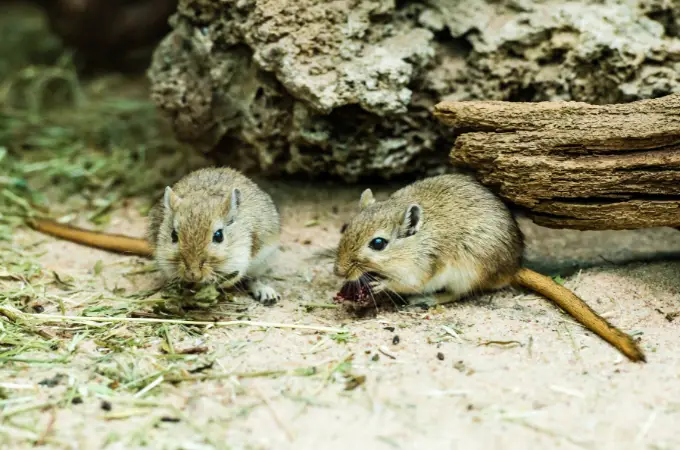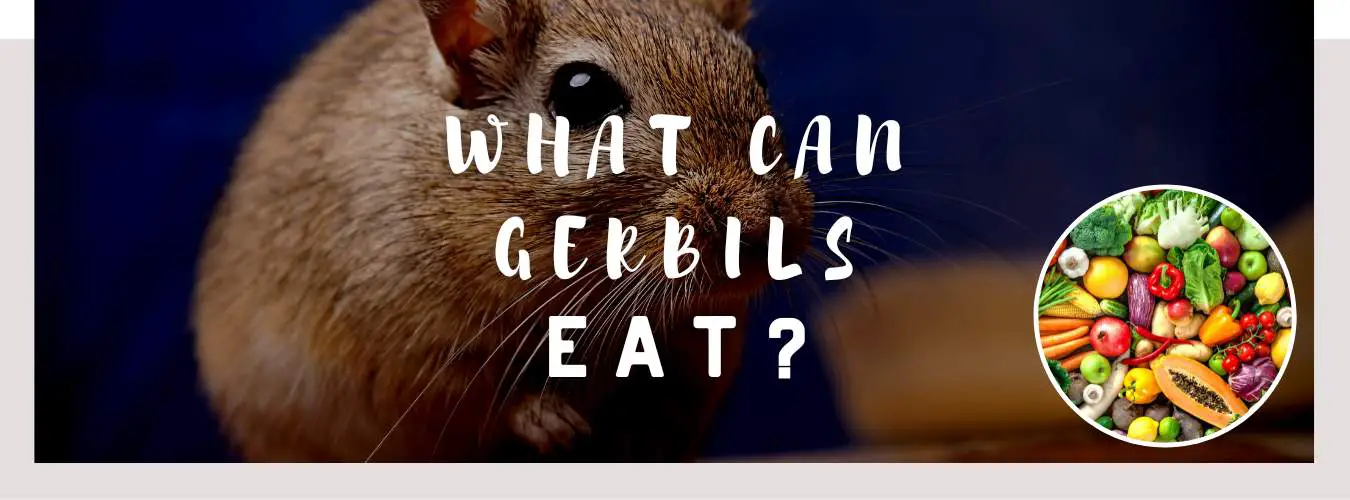
Gerbils, the small, inquisitive rodents often kept as pets, have specific dietary needs that are crucial for their health and wellbeing. This article aims to provide comprehensive information about what gerbils can eat, focusing on the benefits, risks, and nutritional aspects of various food items.
Ideal Diet for Gerbils
Gerbils thrive on a diet that mimics what they would find in their natural habitat. This includes:
- Seeds and Grains: A mix of seeds and grains should form the base of a gerbil’s diet. Sunflower seeds, pumpkin seeds, oats, barley, and millet are excellent choices. However, these should be given in moderation due to their high fat content.
- Pellets: Commercially available gerbil pellets are formulated to provide a balanced diet and should be a staple in their feeding routine.
Fresh Foods and Vegetables
Gerbils enjoy a variety of fresh foods:
- Vegetables: Carrots, broccoli, peas, and leafy greens like kale and spinach can be given in small amounts. These vegetables are high in vitamins and fiber, which are beneficial for gerbil health.
- Fruits: In moderation, fruits such as apples, pears, and bananas can be a healthy treat. However, due to their high sugar content, fruits should be given sparingly.
Foods to Avoid
Certain foods can be harmful to gerbils and should be avoided:
- Citrus fruits and onions: These can be acidic or cause digestive issues.
- Chocolate and caffeine: These are toxic to gerbils.
- Sugary or salty snacks: These can lead to health problems like obesity and diabetes.
Hydration and Water
Water is a critical part of a gerbil’s diet:
- Fresh Water: Ensure that your gerbil always has access to fresh, clean water. A water bottle attached to their cage is the best way to provide this.
Treats and Supplements
Treats and supplements can be beneficial when given in moderation:
- Nuts: Almonds and peanuts can be occasional treats but should be unsalted and given in small quantities.
- Supplements: In some cases, a vet may recommend supplements, especially if your gerbil has specific health needs.
Quantity and Frequency
Portion control is essential:
- Daily Portions: Gerbils typically eat about a tablespoon of food per day.
- Regular Feeding Schedule: Maintain a consistent feeding schedule to help regulate their digestion and overall health.
While specific studies on gerbil diets are limited, general research on rodent nutrition can apply. These studies suggest that a balanced diet, low in fat and high in fiber, is crucial for the health of small mammals like gerbils.
Understanding Gerbil Nutrition
Understanding the nutritional needs of gerbils is key to ensuring their long-term health and happiness. Gerbils, like other small mammals, require a diet that is high in fiber, moderate in protein, and low in fat. This section delves deeper into the nutritional components essential for gerbils.
Fiber: The Foundation of a Gerbil’s Diet
- Importance: Fiber is crucial for a gerbil’s digestive health. It helps in maintaining regular bowel movements and preventing obesity.
- Sources: The primary source of fiber for gerbils comes from hay, whole grains, and vegetables. Timothy hay and orchard grass are excellent choices.
Protein: Building Blocks of Health
- Need for Protein: Gerbils need a moderate amount of protein for muscle development and overall growth.
- Protein Sources: High-quality gerbil pellets usually contain the necessary amount of protein. Occasional treats like mealworms or small pieces of hard-boiled egg can also be beneficial.
Fats: Necessary but in Moderation
- Role of Fats: Fats are essential for energy and maintaining healthy skin and fur. However, too much fat can lead to obesity.
- Balancing Fats: Seeds like sunflower and pumpkin seeds are high in fat and should only be a small part of their diet. Choosing pellets that have a balanced fat content is essential.
Feeding Practices for Gerbils
Feeding gerbils involves more than just choosing the right foods. It’s about how and when you feed them.
Feeding Schedule
- Consistency is Key: Feeding your gerbil at the same time each day helps regulate their digestive system and ensures they always have access to fresh food.
- Observation: Pay attention to how much your gerbil is eating. If they leave a lot of food behind, it could be a sign of overfeeding or not liking certain foods.
- Clean Feeding Area: Regularly clean the feeding area and remove any uneaten fresh food to prevent spoilage and bacterial growth.
Understanding Gerbil Behavior Around Food
Gerbils have unique behaviors around food that owners should be aware of.
- Natural Instincts: Gerbils often hoard food in their bedding. This is a natural instinct and should be considered when determining how much food they are actually consuming.
- Nocturnal Feeding: Gerbils are most active at night. Therefore, feeding them in the evening can align with their natural feeding habits.
The diet of a gerbil directly affects its health. Certain conditions can be managed or prevented through diet.
Obesity Prevention
- Controlled Portions: Overfeeding and a diet high in fat can lead to obesity. Monitoring portion sizes and the fat content in their diet is crucial.
Dental Health
- Chewing Needs: Gerbils need to chew to keep their continuously growing teeth at a manageable length. Providing chew sticks or hard vegetables can help with this.
Digestive Health
- Avoiding Sudden Changes: Sudden changes in diet can upset a gerbil’s digestive system. Any changes to their diet should be gradual.
Final Thoughts
Feeding gerbils the right foods in the right amounts is crucial for their health. A balanced diet, along with an understanding of their nutritional needs and feeding behaviors, can ensure your gerbil lives a happy and healthy life. By being attentive to these details, you can provide the best possible care for your furry friend.
FAQs
Q: How often should I feed my gerbil?
A: Gerbils should be fed once a day, with a tablespoon of a balanced seed and grain mix, supplemented with occasional fresh foods.
Q: Can gerbils eat meat?
A: Gerbils are primarily herbivores and do not require meat in their diet. Stick to seeds, grains, fruits, and vegetables.
Q: Is it safe to give my gerbil cheese or dairy products?
A: Dairy products are not recommended for gerbils as they can cause digestive issues. It’s best to avoid giving them cheese or other dairy products.
Q: How much fruit can I give my gerbil?
A: Fruits should be given sparingly, as treats. A small piece once or twice a week is sufficient.
Q: Can gerbils eat bread or cooked foods?
A: It’s best to avoid feeding gerbils bread or cooked foods as these can disrupt their digestive system. Stick to their natural diet of seeds, grains, and occasional fresh produce.
You might also like:
- Can Gerbils Eat Carrots?
- Can Gerbils Eat Strawberries?
- Can Gerbils Eat Apples?
- Can Gerbils Eat Grapes?
- Can Gerbils Eat Bananas?
- Can Gerbils Eat Tomatoes?
- Can Gerbils Eat Blueberries?
- Can Gerbils Eat Celery?
- Can Gerbils Eat Lettuce?
- Can Gerbils Eat Cheese?
- Can Gerbils Eat Watermelon?
- Can Gerbils Eat Cucumbers?
- Can Gerbils Eat Oranges?
- Can Gerbils Eat Peanut Butter?
- Can Gerbils Eat Broccoli?
- Can Gerbils Eat Almonds?
- Can Gerbils Eat Spinach?
- Can Gerbils Eat Peanuts?
- Can Gerbils Eat Raisins?
- Can Gerbils Eat Raspberries?
- Can Gerbils Eat Bread?









